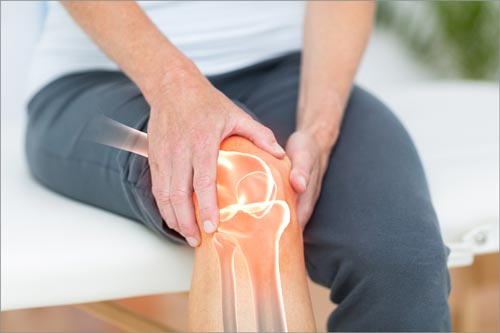

While there is no known cure for arthritis, you can control your symptoms with proper care. If you are one of more than 50 million American adults who have been diagnosed with arthritis, you may be looking for an effective plan to ease your pain and regain mobility. While your health care provider may prescribe medication to control your symptoms, there are several measures you should take to manage your condition. Here are five smart tips to consider to feel better and prevent future flare-ups.
Try to move around more and work on a daily plan for exercise. Exercising regularly (when you are not experiencing a painful flare-up) can keep your joints flexible and prevent stiffness. Regular physical activity may also improve your range of motion. As a bonus, routine exercise will also help you manage your weight, as being overweight places added stress on the joints.
To reduce the risk of further injury to your joints, choose exercises or activities are that low-impact. This may mean walking rather than running or jogging. Cycling or bike riding is a good choice for those with knee arthritis. The motion of cycling helps to keep your knee joints flexible and rid them of harmful fluids.
With your doctor’s approval, you might also try taking up yoga. Various yoga stretches and exercises may help keep your muscles and joints fluid. Swimming or other forms of hydrotherapy is also beneficial for many arthritis sufferers. If you are looking for more inspiration, search for exercise videos created specifically for those with arthritis.
Ask your health care provider if physical therapy (PT) with a licensed physical therapist may be beneficial for you. A physical therapist may demonstrate particular exercises that may help you, as well as implement other strategies and treatment plans.
In addition to exercises, physical therapy may include heat and cold applications. Another form of PT includes transcutaneous electric nerve stimulation (TENS). This is a form of electrotherapy that uses a small device which sends a current directly to your affected joints. TENS is often used to improve circulation and relieve inflammation and pain.
Check the pain-relieving section of your local pharmacy. Several pain-relieving applications are probably available. If you find these solutions do not work for you, ask your doctor about prescription creams or patches.
The food choices you make may have an impact on your arthritis. For instance, too much refined sugar may cause inflammation and worsen your symptoms. Fried and fatty foods may do the same.
To help you control your arthritis symptoms and prevent flare-ups, you should stick to an antiinflammatory diet. A diet that may help includes plenty of fresh fruits and vegetables, with adequate amounts of fiber. Foods containing omega-3 fatty acids are also known to reduce or prevent inflammation. Choose fresh salmon, tuna, mackerel, and sardines, as well as nuts and flax seeds.
Choose supplements such as Boswellia serrata, also known as Indian frankincense, which may prevent or reduce inflammation. Capsaicin may help reduce the pain that is associated with your condition. Turmeric may also ease your pain and swelling when taken in capsule form or applied topically as a paste. You might also try fish oil capsules or chondroitin, both of which may be beneficial in helping ease your symptoms.
As a precaution, always consult with your physician before taking dietary supplements or herbal remedies. Doing so will reduce the risk of interaction with other medications or supplements you are taking.